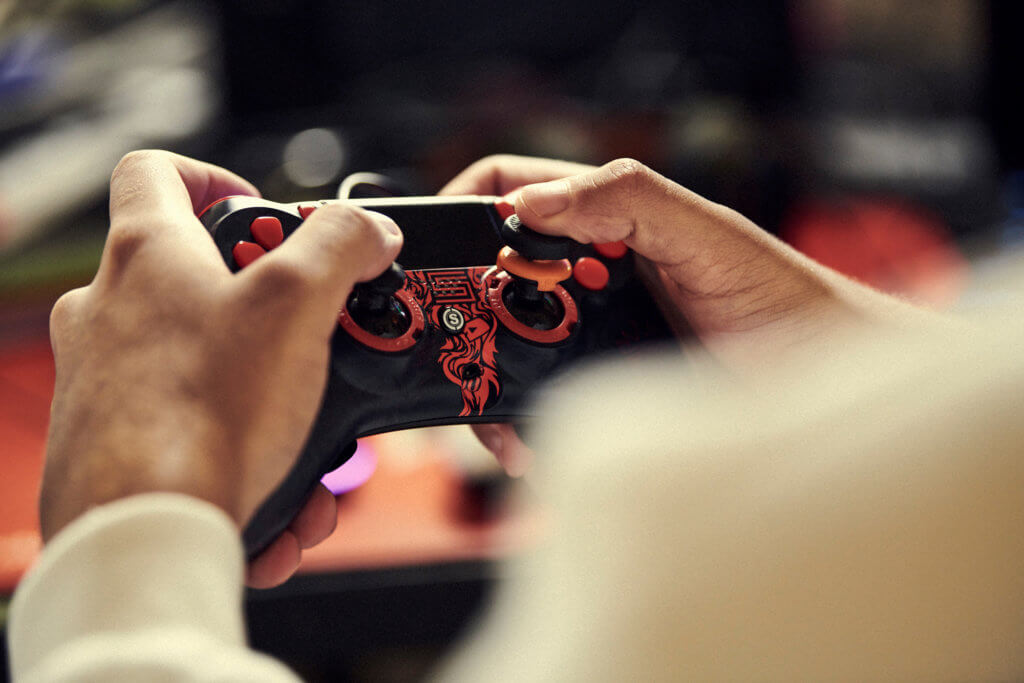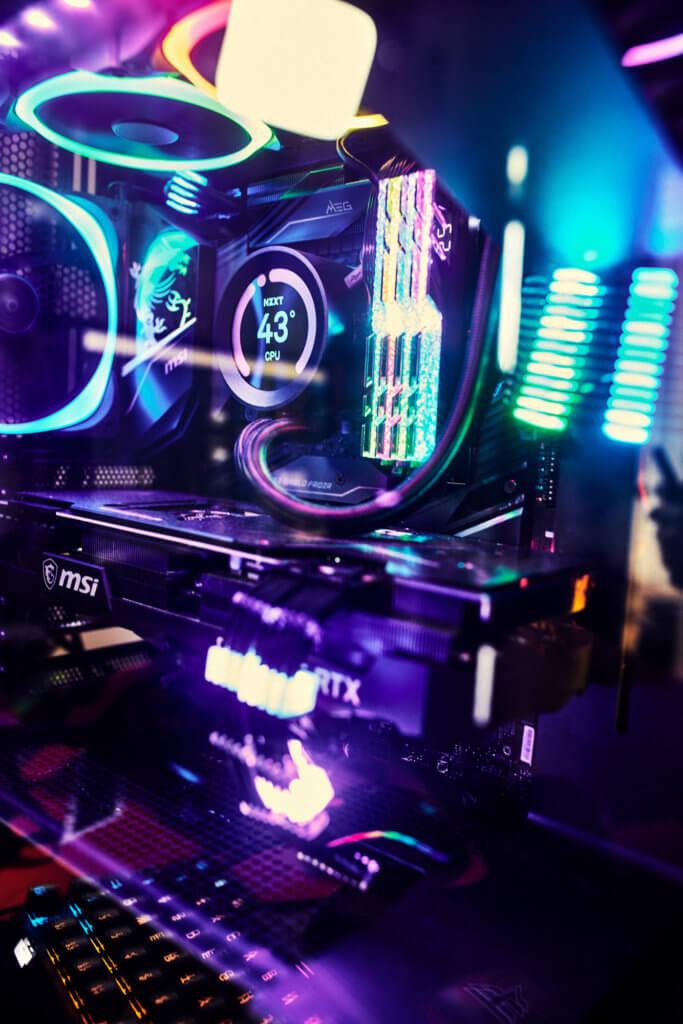III
The scale of the gaming world is hard to wrap your arms around, especially if you’re over a certain age. But here’s a helpful metric: according to IDC data released in December 2020, the video game industry was set to make $179.7 billion last year, which was more than the global film industry and the North American sports industry combined. With the rise of streaming services in search of original content, a growing cohort of gamers have ridden the industry boom into full-fledged fame. Tyler Blevins, a gamer who goes by the pseudonym Ninja, earned $17 million in 2019, according to Forbes; less than $100,000 came from competitions. Instead, today’s most lucrative gamers are a hybrid of influencers and athletes — the endorsement deals and streaming proceeds far outstrip the prize money.
Lamberson quickly recognized the earning potential of his Call of Duty streaming sessions. As he sat rehabbing in his dorm room, he watched his YouTube following grow. Early on, B.J. teased him — “Oh, yeah, some nine year olds watch you; you’re so cool” — but it was becoming clear that he had a gift: for Call of Duty and, even more so, for the streaming medium.
But Lamberson wasn’t always good at video games. At first, he barely played at all. When Call of Duty: Modern Warfare 3 came out, his friends would come over and he’d struggle to compete. He’d been the star basketball player all his life, so the failure stung his teenage ego. “Man, they would tease me, telling me how trash I am. That pissed me off,” Lamberson says. So, he became “addicted” to improving at the game, waking up at 4 a.m., so he could sneak in three hours before walking to school. Before long, they couldn’t talk trash anymore.
It was around then, at 17, that he started posting highlights to his YouTube channel. But at the time, basketball was still a full-time job. He was a lefty point guard tasked with marshalling his team. But a year later, as he sat rehabbing, he felt a pull towards his new passion.
When his shoulder healed, he put streaming to the side and went back to the basketball grind, trying and failing to win playing time. His injury had made him a forgotten man in the eyes of the coaches. He hardly played during a disappointing sophomore season. He felt himself losing his love for the game. “I always loved basketball. I understood it. But I realized that basketball wasn't life,” he says. “For 18 years, it was really [my life]. But I learned at that point that it was just a vehicle.”
Right around then, Lamberson’s mother and father started the process of getting divorced. When his parents finally separated, the triplets blamed William; they didn’t talk to their father for months.
“I understand why they were mad. I understand why. But it was just still hard as a dad,” William says. “I felt like I let them down. As being that role model, I let them down. And I think that's what hurt them the most.”
Lamberson dove headfirst into his YouTube channel. Right before his junior year began, he made $1000 in a month for the first time. He pulled his mother aside to have a talk. “I was like, ‘Mom, just give me one semester. I'm not having fun. I'm not happy,’” he says. “She let me have the semester off to just give everything I could to YouTube. And then it just all played out.”
To give up the sport he’d invested two decades in was frightening; it felt like he was giving up his and his father’s shared hoop dream. “My dad was the one who was all about basketball. But I wasn't living with him; I was living with my mom. So, it was a lot easier,” he says. “My dad didn’t even find out until three months into the semester. He checked up on me, and I said, ‘Pops, I’m not even going to school. I’ve been doing YouTube for the last two months.’ And by that point I was making such good money, it was like, what could you really say?”
“It was a shock to me. For a minute, I was stunned. But then I was like, it’s his life decision,” William says. “These are consequences of me making some mistakes. It turned out well, but yeah, it did hurt. At that point, it was like, ‘Okay, that dream is gone.’ You know what I mean? It's gone."